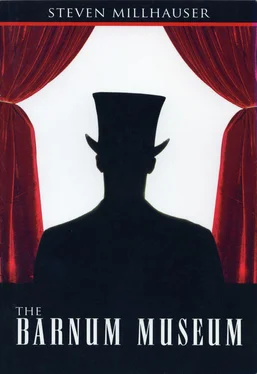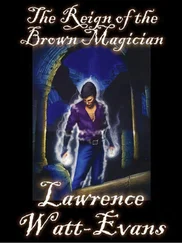With the onset of adolescence my powers of imagination, so lively and varied during childhood, took a conventional turn. My sexual fantasies were precise, obsessive, and inaccurate. I was particularly fond of imagining the slow, the very slow, the dreamily slow raising of a dark wool skirt or light summer dress to reveal pastel underpants molding themselves to disturbing bulges. I imagined that girls were quite smooth under there, like rubber dolls, until one day a schoolmate with a beet-colored birthmark on his jaw carefully unfolded a wrinkled photograph. After that I imagined prodigious growths, exuberant and impossible burgeonings. In high school I amused myself by mentally removing the skirts and slips of girls who stood writing on the blackboard. I waited for them to turn, to look at the entire class seated in suspenseful silence, to begin to realize…but they never did, those brazen girls, they just brushed the chalk from their fingers and ambled back to their seats with that little tick-tock motion of hips as if nothing had happened. One evening in the winter of senior year I placed my right hand on the bare upper thigh beneath the charcoal-gray skirt of Carol Edmondston. She looked thoughtful, as if she were trying to remember an address. That spring I took up oil painting without success and planned with a friend a long summer trip that never materialized.
I went to a good but remote Eastern college and there, amid the hills and snows of northern New England, I became a serious student. I declared myself an idealist, despised all intellectual endeavor tainted by the practical, and double-majored in English and Philosophy, both of which I chose because they bore no relation whatever to actual life. I spent fourteen hours a day in the library and soon earned the respect of my professors, a fact that only heightened my sense of secret failure. About this time my first headaches began. One night in the spring of junior year I undressed Celia Ann Hodges on her oval braided rug during a romantic thunderstorm and was forced to make certain adjustments in the imaginary women who haunted my mind. In the summer between junior and senior year I wrote in ten weeks the draft of a six-hundred-page novel (ten pages a day, six days a week) but for some reason stopped at the end of the penultimate chapter and never completed it. In November, December, and January of senior year I began a comedy, a tragedy, and a tragicomedy, respectively, all three of which I destroyed one night during spring break. Shortly afterward I received Highest Honors for my senior thesis, “The Role of Metaphor in the Philosophy of Locke.” On the night before graduation I stayed up till dawn explaining to a girl I had met at midnight that great work can be accomplished only in solitude, and the next day, an hour after returning my cap and gown, I traveled by train to my family home in southern Connecticut.
My father, pleased by my good grades but troubled by the vagueness of my plans, had agreed to let me live at home for a year before I went to law school or business school or took some job or other or did something, anything. I moved into the spare room in the attic and threw myself into several ambitious literary projects, which soon came to nothing. I began to invent a series of artists’ lives that I planned to assemble in a book of fictional biographies, but one night I noticed that all of them were failed artists and I abruptly abandoned the plan. By mid-August I was going to bed at five in the morning and waking at one in the afternoon. I began reading long books, which fired my ambition without leading to anything in particular: The Anatomy of Melancholy, The Decline and Fall of the Roman Empire , the complete letters of Byron in twelve volumes. By October I was sullen and irritable. I refused to apply to graduate school, stating to my father that I would rather hang myself than enter a finishing school for mediocrity. My father said that I couldn’t hang myself without a rope and that a rope cost money. My father’s ironic attitude caused a coolness between us but he did not press matters after that. I began borrowing books on architecture from the library and invented in vivid detail gorgeous villas, gardens, palaces, country estates, amusement parks. On December 31 I wrote a thirty-four-page suicide note that I destroyed on January 1. In the spring I left home to work in a bookstore in a small town near my college and returned a month later with the plan for an American epic in fifty cantos, one for each state. My father agreed to support me for one more year if I promised to apply to business school in the fall. I returned to my attic life. The book came to nothing and I took up the study of Latin and Italian. At this period I began to have dull, gentle, persistent headaches, nothing bad, not really, but definitely noticeable. One warm spring night an exhilarating idea came to me.
In the week before my idea I had been puzzling over a problem. It seemed to me that a distinction should be made between two types of artistic sterility. In one type, the imagination remains a horrible blank, its mechanism simply refuses to create images, or else produces hopelessly banal or dead ones, greenish little corpses with waxen features. Would-be artists suffering from this form of sterility can do nothing but admit defeat, turning their attention to less exacting pursuits or perhaps shooting themselves between the eyes, as the case may be. In the second type, the imagination remains strong, perhaps too strong, and the sufferer’s torment consists in his inability to embody his meticulous imaginings in a medium. This type, though superficially resembling the first, since both issue in nothingness, is nevertheless far more hopeful, for its cure depends on the discovery and mastery of a medium. My own case was clearly of the second type, since my image-making faculty, far from being impaired, was almost disturbingly strong and resulted in vivid, detailed, elaborate eidola, which longed for release.
My parents’ house stood about a mile from a small public beach where I sometimes strolled at night. On the warm spring night when my idea came to me I was walking on the hard sand below the ragged line of mussel shells, cracked crabshells, and seaweed. The brilliant moon, much too round, gleamed in the wet flat sand by the water’s edge. I thought of my uncertain future, my failed past, my oddly becalmed present — cast up as I was in the attic of my father’s house — my restlessness, my wistfulness, my inner riot mixed with outer calm, my headaches, my eyeaches, my sense of not yet having entered into my proper adulthood combined with my sense of being eighty-seven years old, my rancor, my languor, my soul-soreness, my sighs. I was beginning to enjoy this list and wondered whether I could extend it indefinitely when all at once I felt tired, immensely tired, as if I had not slept in a long time. It occurred to me that I hadn’t really slept well for a long time, even as a child I was a terrible sleeper, the slightest noise startled me awake. By this time I had come to an abandoned lifeguard chair and in obedience to an obscure impulse I began climbing up the side in order to sit looking out over the moonlit water with a melancholy expression. It was as I was climbing up the side that my idea came to me and I reached the top in a state of high excitement. I decided to invent a human being by means of the full and rigorous application of my powers of imagination. Instead of resorting to words, which merely obscured and distorted the crystalline clarity of my inner vision, I would employ the stuff of imagination itself. That is to say, I would mentally mold a being whose existence would be sustained by the detail and energy of my relentless dreaming. My ambition was to create not an actual human being or a mere work of art but rather a being who existed in a realm parallel to the other two — a third realm, obedient to the laws of physical bodies but utterly discarnate.
Читать дальше












